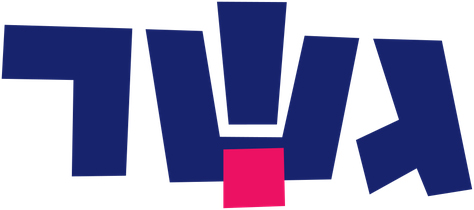Israel Political Parties: Gesher
 |
Established in 1996, Gesher (Hebrew: גשר, lit. Bridge) formed as a break-away from the Likud Party. David Levy, Gesher’s founder, was protesting Netanyahu’s refusal to integrate Sephardim into the upper echelons of the Likud. After weeks of negotiation, Gesher, along with Tzomet, joined the Likud “national camp” list for the 1996 elections. A few Gesher members, opposing this alliance, decided to found their own group, Israel Hadashah. Gesher took five seats in the Knesset and Levy was appointed foreign minister by Netanyahu. In the following months some of Gesher’s members defected to Likud.
With Likud expected to lose, Gesher allied itself with the Labor Party and Meimad to create the “One Israel” (Yisrael Ehad) coalition for the 1999 elections. Gesher was allotted two seats in the 15th Knesset and Levy was reappointed foreign minister under the new government led by Ehud Barak.
A new incarnation of the party was established in December 2018 by Orly Levy-Abekasis, the daughter of David Levy, as a center-left party focused on economic and cost-of-living issues.
Levy-Abekasis was a member of the 20th Knesset for Yisrael Beiteinu, but said she would leave the party after she was denied a ministerial position in the 34th government, and objected to what she said was the party’s abandonment of its social platform in negotiations to join Netanyahu’s coalition. She remained in the Knesset as an independent member supporting the opposition and was ultimately ousted from Yisrael Beiteinu.
Levy-Abekasis attempted to run on a joint list with Benny Gantz’s Resilience Party, but after negotiations failed, she said Gesher would run alone. She expressed confidence in winning seats in the 2019 election “because there is a need for a party that knows about and cares about the challenges facing people. We will be here for the people who need it.”
“There’s this constant divide between right and left, which is a divide that serves the interests of members of the old world order,” Levy-Abekasis stated. She intends to focus on socioeconomic affairs including pensions, health, housing, child-rearing and strengthening small and medium businesses. “I want to advance these issues, I want to put them front and center. I want to make them the issues that perhaps will break the status quo and create in my eyes a new order,” she told Hadashot.
“Now is the time to make sure that any government that will be established here after the elections will no longer neglect the social issues, even if they are bored by them. Now is the time to return Israel to a state that does not abandon the weak. Now is the time to build a bridge here,” she wrote in a Facebook post. “A bridge between populations that have known for too long that they should hate each other. A dangerous division that prevents us from fighting the common enemy: cynical interested persons who enjoy the mutual sedimentation and the convenient division into boxes. A bridge between the present, which is stuck in past terms of the left, the right and the center, and a future which is real growth, one that meets everyone and closes unbelievable gaps among all groups in Israeli society.”
Levy-Abekasis insisted, “The 2019 elections are a historic opportunity to implement a new social order in Israel, to restore it to a state that is repairing injustices and dealing with years of neglect. It is possible and it depends only on us.”
Gesher did not pass the electoral threshold in April 2019 to gain any Knesset seats and Levi-Abekasis announced in July that Gesher would run jointly with the Labor Party in the September 2019 election.
The Labor-Gesher slate won six seats in the September 17, 2019, election.
Labor-Gesher and Meretz announced they would run together in the March 2, 2020, election. Amir Peretz and Meretz leader Nitzan Horowitz agreed that Peretz would lead the joint slate and Levy-Abekasis would be placed in the second spot on the roster. Horowitz will be placed third on the joint ticket.
Sources: “Political Parties and Platforms,” Chapter Two. Democracy In Action;
Moran Azulay and Matan Tzuri, “Orly Levy-Abekasis announces new political party,” Ynet, (March 6, 2018);
Hezki Baruch, Levy-Abekasis’ party to be named Gesher,” Arutz Sheva, (December 26, 2018);
“Gesher ‘Bridge’ Party,” Dictionary of the Israeli-Palestinian Conflict, Encyclopedia.com, © 2005, The Gale Group, Inc. (accessed March 12,. 2019);
“Gesher,” Wikipedia;
Raoul Wootliff, “Blue and White, Gesher, Kulanu file party slates hours before deadline,” Times of Israel, (February 21, 2019);
Gesher Party Website;
“Orly Levy-Abekasis is Israel’s newest political wildcard,” Times of Israel, (March 14, 2019);
Chaim Levinson, “Left-wing Shakeup: Labor, Orli Levi-Abekasis Announce Joint Run Ahead of Israeli Election,” Haaretz, (July 18, 2019);
Jonathan Lis, “Labor Party, Meretz Announce Merger Ahead of Israel Election,” Haaretz, (January 13, 2020).


